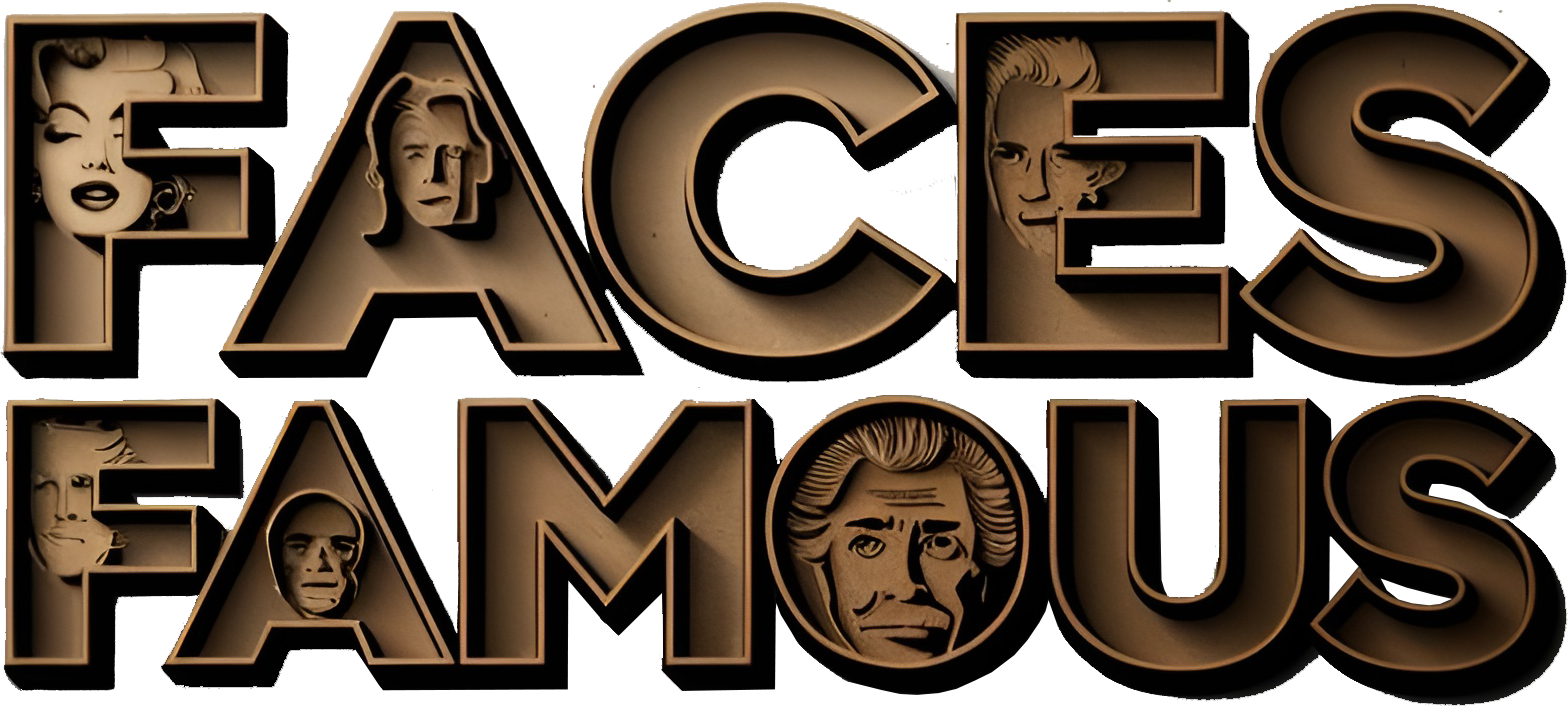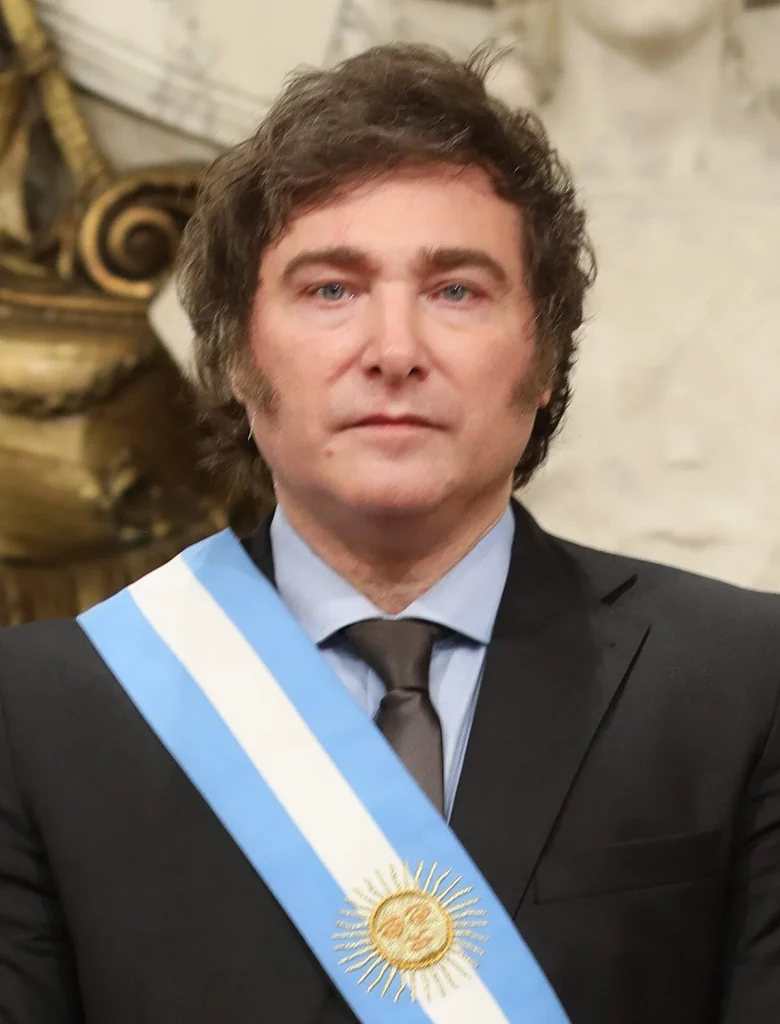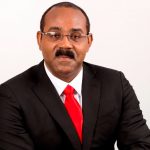Javier Milei is an Argentine economist, author, and politician who has made headlines as a libertarian leader and the founder of the political party “La Libertad Avanza” (Liberty Advances). His rise to political prominence reflects a growing discontent with Argentina’s traditional political establishment and economic policies, especially amid the country’s long-standing issues with inflation, debt, and government intervention in the economy. Known for his fiery speeches, controversial views, and unconventional approach to politics, Milei has gained a significant following, particularly among younger voters who see him as a radical alternative to the status quo.
Early Life and Education
Javier Gerardo Milei was born on October 22, 1970, in Buenos Aires, Argentina. Raised in a middle-class family, Milei’s early years were marked by a passion for soccer, and he initially aspired to be a professional soccer player. However, his interests soon shifted toward economics, particularly after Argentina’s military dictatorship and the subsequent economic crises that plagued the country in the 1980s.
Milei went on to study economics at the University of Belgrano in Buenos Aires, where he earned his degree in economics. He later obtained a master’s degree in economics and economic sciences from the Instituto de Desarrollo Económico y Social (IDES), solidifying his academic foundation in the subject. His academic journey was heavily influenced by the ideas of classical liberalism and libertarianism, particularly the works of Austrian School economists like Friedrich Hayek, Ludwig von Mises, and Murray Rothbard.
Career as an Economist
Before entering politics, Milei worked as a professional economist and consultant. He gained recognition for his outspoken criticism of Argentina’s economic policies, which he argued were leading the country into a spiral of inflation, corruption, and government overreach. He became a frequent guest on television and radio programs, where his blunt, often aggressive communication style resonated with viewers frustrated by Argentina’s chronic economic instability.
Milei also wrote extensively on economic theory, authoring several books, including El Camino del Libertario (“The Libertarian’s Path”) and Desenmascarando la Mentira Keynesiana (“Unmasking the Keynesian Lie”). In these works, Milei lays out his libertarian vision for Argentina and harshly criticizes Keynesian economic policies, which he believes have contributed to Argentina’s cycles of boom and bust.
Libertarian Ideology
At the core of Milei’s political and economic ideology is a deep commitment to libertarianism. He advocates for a drastic reduction in the size of government, a free-market economy with minimal regulation, and the elimination of central banking. His economic philosophy aligns with the Austrian School of economics, emphasizing individual freedom, private property rights, and limited government intervention in both the economy and personal lives.
Milei has proposed abolishing Argentina’s central bank, which he believes is responsible for the country’s rampant inflation by printing excessive amounts of money. Instead, he advocates for a monetary system based on the U.S. dollar, similar to what other Latin American countries like Ecuador have implemented, to stabilize the economy and curb inflation.
He also supports widespread deregulation, the privatization of state-owned enterprises, and a flat tax system. In his view, the Argentine state is overburdened by bureaucracy and corruption, and the best way to revive the economy is to empower individuals and businesses through free-market policies. Milei’s libertarianism also extends to social issues, where he takes a more liberal stance, advocating for personal freedoms and limited state interference in private matters.
Political Rise
Javier Milei’s entrance into formal politics was relatively recent but highly impactful. In 2021, he ran for a seat in Argentina’s Chamber of Deputies (the lower house of Congress) representing Buenos Aires as part of his newly founded party, “La Libertad Avanza.” His campaign was characterized by anti-establishment rhetoric, anti-socialism, and promises to radically overhaul Argentina’s political and economic system.
Milei’s message resonated with a broad segment of the population, particularly among younger voters and those disillusioned by Argentina’s two main political coalitions: the center-left Peronist movement, which has traditionally dominated Argentine politics, and the center-right opposition. His anti-establishment stance, along with his charisma and straightforward communication style, helped him capture a significant percentage of the vote, winning him a seat in the Chamber of Deputies in 2021.
Populist Appeal and “The Chainsaw Plan”
Milei’s popularity can largely be attributed to his ability to connect with voters who feel betrayed by the political establishment. His speeches often feature harsh criticism of what he calls Argentina’s “political caste”—a term he uses to describe corrupt and ineffective politicians who have enriched themselves at the expense of the people. He often likens himself to Donald Trump and Brazil’s Jair Bolsonaro, who also rose to power through populist, anti-establishment campaigns.
One of Milei’s most famous proposals is his so-called “Chainsaw Plan” (Plan Motosierra), which calls for massive cuts to government spending. He has vowed to “take a chainsaw” to the bloated state bureaucracy, reducing the number of public employees and eliminating many government agencies. This, he argues, is necessary to reduce Argentina’s enormous fiscal deficit and bring the country’s finances back under control.
However, his extreme views have also been polarizing. While his supporters see him as a bold reformer who is unafraid to speak the truth, his critics accuse him of being too radical and out of touch with the complexities of governing a country as diverse and economically troubled as Argentina.
Controversies
Milei’s career has been marked by several controversies. His aggressive communication style, often laced with insults toward his political opponents, has earned him both admiration and condemnation. He has referred to politicians across the spectrum as “parasites” and “thieves,” and his fiery rhetoric has led to heated debates in Argentina’s media and political circles.
Milei has also faced criticism for his ties to far-right groups and individuals. While he has denied being a part of the far-right, his outspoken admiration for leaders like Jair Bolsonaro and his skepticism toward feminism and climate change policies have drawn accusations that his libertarianism veers into more extreme territory.
Additionally, his proposal to eliminate Argentina’s central bank and dollarize the economy has been met with skepticism from mainstream economists, who argue that such a move could further destabilize the economy and make it more vulnerable to external shocks.
2023 Presidential Run
In 2023, Milei announced his candidacy for the Argentine presidency, positioning himself as the outsider candidate in a race dominated by Argentina’s two traditional political coalitions. Running on the platform of radical economic reform, reducing government corruption, and restoring individual freedoms, Milei’s presidential bid has garnered significant attention, both nationally and internationally.
He has framed his campaign as a battle between individual freedom and the oppressive state, casting himself as the only candidate willing to take on Argentina’s entrenched political class. While his campaign faces significant challenges, including the uphill battle of winning over more moderate voters, Milei’s growing popularity among disillusioned Argentinians suggests that his candidacy could reshape Argentina’s political landscape.
Conclusion
Javier Milei represents a new and radical force in Argentine politics. As a libertarian economist turned politician, his uncompromising stance on free-market policies, individual liberty, and his vehement opposition to the political establishment have earned him a loyal following. However, his controversial views and proposals have also polarized the electorate, leaving many to question whether his ideas can successfully address Argentina’s complex economic and social problems.
Milei’s rise to prominence reflects the frustrations of many Argentinians with decades of economic mismanagement and political corruption. As he continues to challenge the traditional political system, Milei’s impact on Argentine politics is likely to be profound, regardless of whether he ultimately succeeds in winning the presidency.



